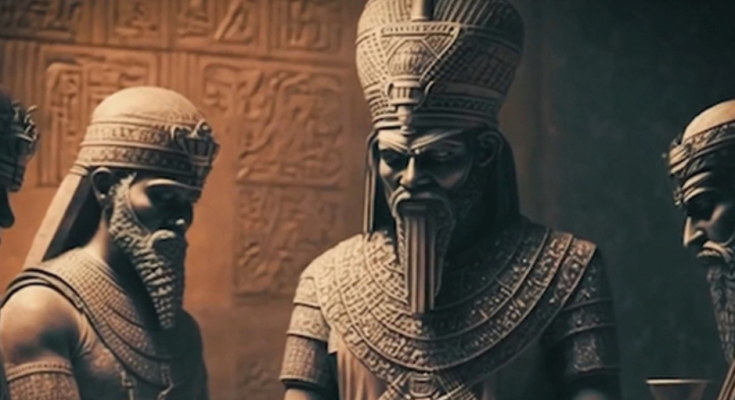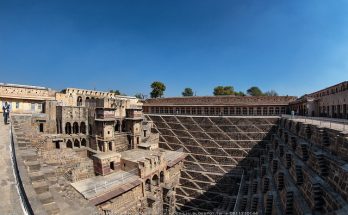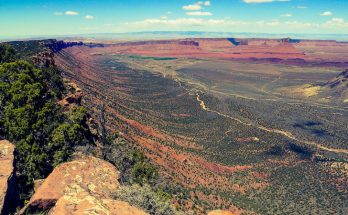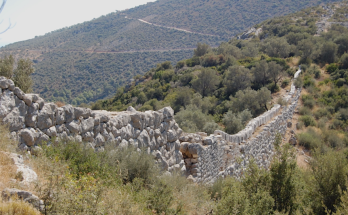2,500 years before the birth of God, emperor Gilgamesh, ruler of Uruk, became the main character in the Epic of Gilgamesh – the “book” considered the oldest in history, which in fact just a set of inscribed clay tablets.
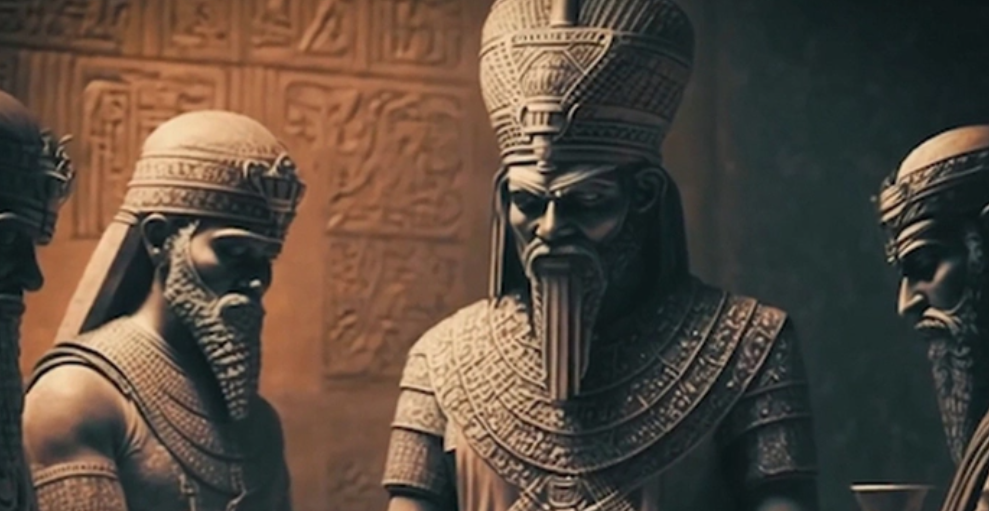
There are many myths and legends in human history, some of which talk about prehistoric giants. For example, the Anunnaki “god” in Sumerian civilization.
The Sumerian civilization is one of the earliest civilizations known to mankind, emerging around the fourth millennium BC in what is now southern Iraq.
The Sumerians left behind a large number of cuneiform characters that record their history, culture, religion, science, and other aspects. Most prominent among these are their accounts of human origins and myths and legends.
According to records of the Sumerian civilization, the Anunnaki are a type of advanced creatures from extraterrestrials. In order to repair their home planet, they came to Earth to find the golden element and at the same time create humans. to help them mine gold.
Over time, the Anunnaki married humans, giving birth to hybrid children like Gilgamesh. Gilgamesh is different from ordinary people, he is five meters tall, has infinite strength and extraordinary intelligence. He once ruled Uruk, the largest and richest city in the Sumerian civilization.
These stories sound absurd to current human understanding. However, the discovery of an ancient cemetery has proven that Gilgamesh may have actually existed.
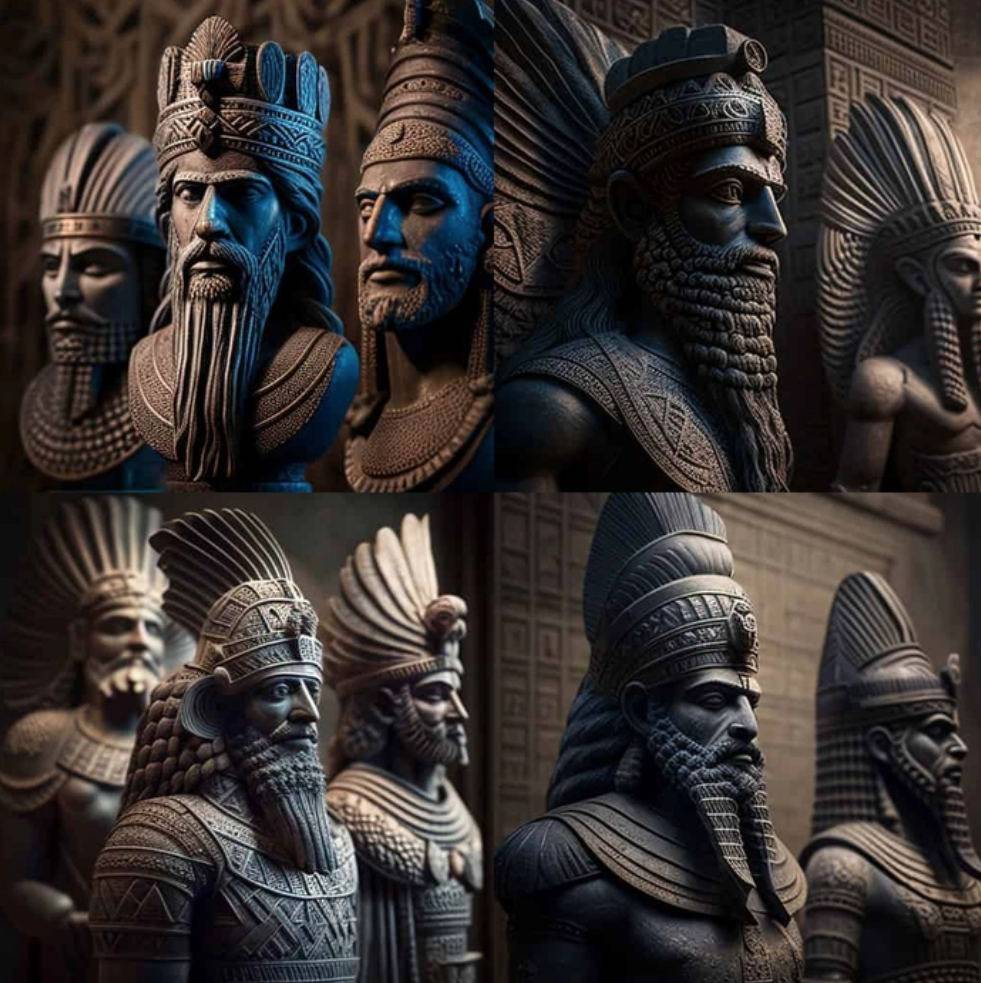
“We found the remains of a structure that could be considered a tomb just outside the city of Uruk, in what used to be the bed of the Euphrates,” Fassbinder said. “I don’t want to say definitively whether it was the tomb of King Gilgamesh, but it looks very similar to those described in the epic poem.”
In 2003, in the southern region of Iraq, through sonar technology, an archaeological team led by German expert Jorg Fassbinder, of the Munich Historical Museum, discovered an ancient city in the desert. This ancient town has 5,000 years of history. Here the group of archaeologists discovered that not only did the city have gardens, houses, canals and other facilities, but this city also had a huge mausoleum.
The archaeological team recovered information from sonar findings that this ancient city is almost identical to the city of Uruk in the records of the Sumerian civilization. Uruk was the earliest and most important city in the Sumerian civilization, where Gilgamesh once ruled.
With a diameter of more than 5 km, it could be considered the largest city in the world at that time. It has walls up to 10 meters high, as well as many temples and palaces. It also had a very advanced canal system that could irrigate farmland and serve as a means of transportation. All of this shows that Uruk was a very wealthy and developed city in the past.
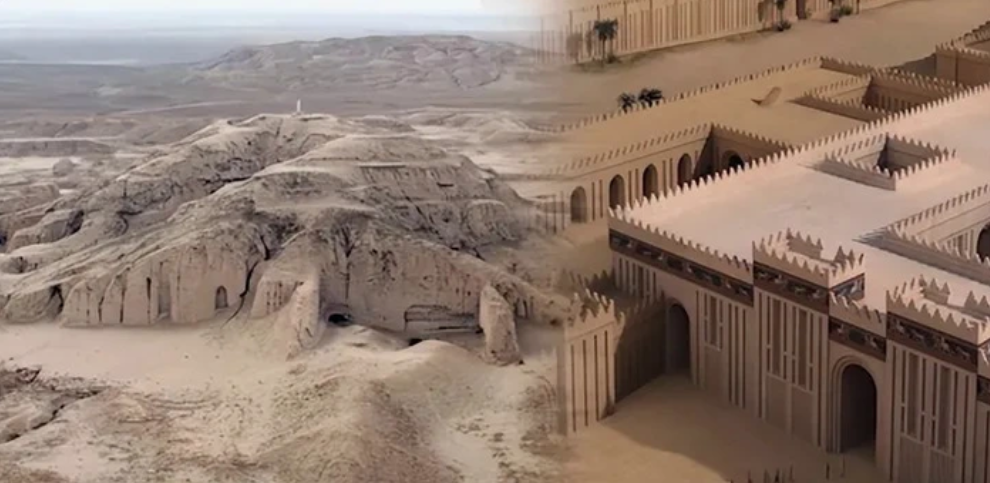
On an area of more than 100 hectares of excavation, the research team also identified garden structures, fields and even Babylonian houses, similar to those described in the epic poem about Gilgamesh. However, the most astonishing discovery was an incredibly complex canal system, “like Venice in the desert”, Fassbinder commented. That proves the high level of development of the ancient residents here
Furthermore, a statue of Gilgamesh was unearthed in the tomb, which strangely wore a watch-like object on its hand and held an adult lion. This evidence suggests that this may have been where Gilgamesh ruled, and that he may have actually existed.
Because according to Sumerian records, Gilgamesh was the fifth king of Uruk recorded in the Sumerian King List, he was considered the son of Lugarbanda and the son of the goddess Ningsong. He is also known as the “King of Heroes” because of his strength and courage far beyond ordinary people.
In the epic, Gilgamesh is described as possessing 2/3 god’s blood and 1/3 human blood, meaning he has the wisdom and strength of the gods, but does not have the longevity of the gods. Gods. Gilgamesh ruled very cruelly over his people, forcing young people into slavery. So the people called on the gods for help, and the gods created Enkidu, a wild man to confront and stop Gilgamesh’s brutality. Enkidu goes to Uruk and has a fierce fight with Gilgamesh, eventually the two become friends regardless of the outcome.
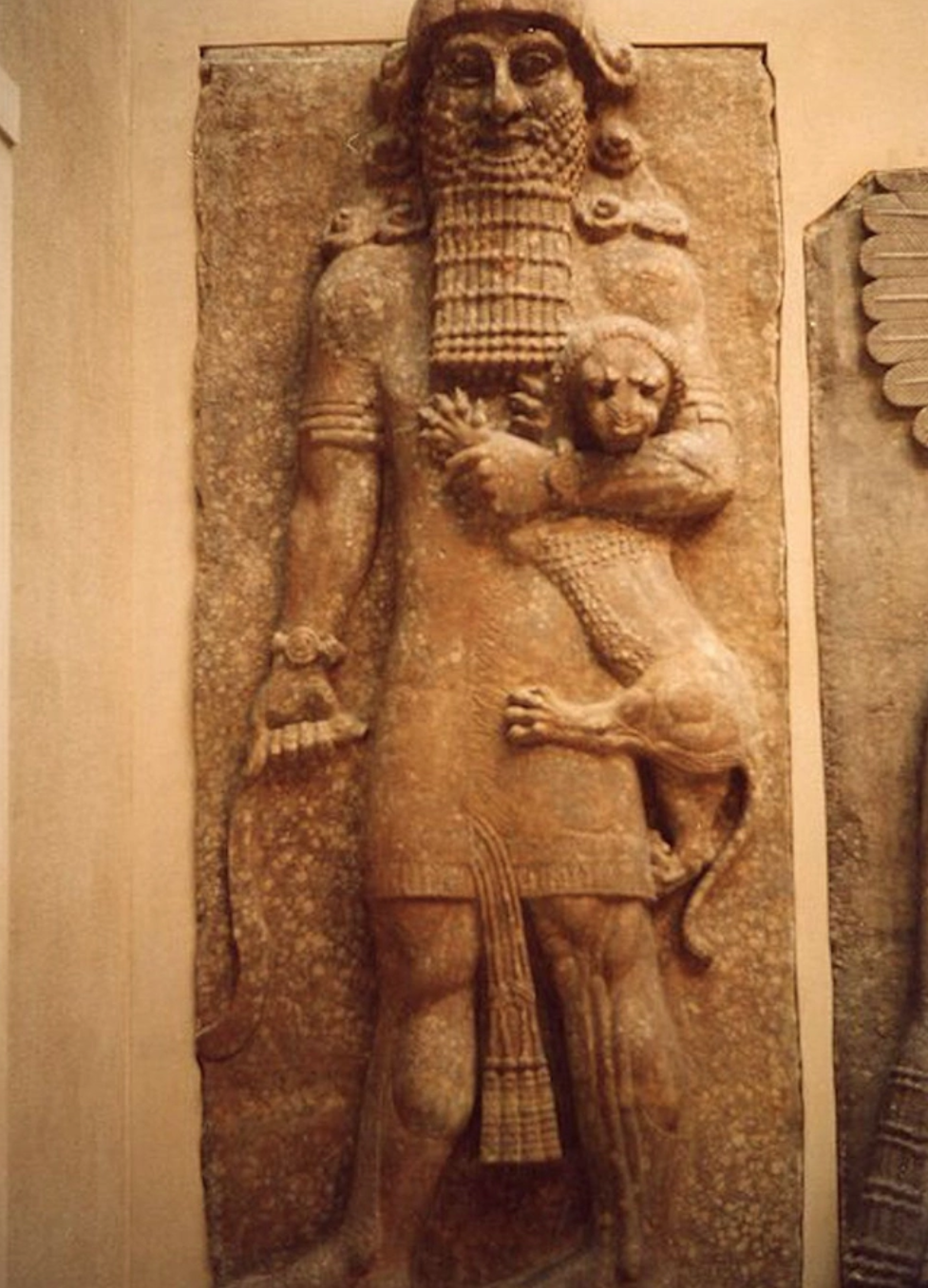
A statue of Gilgamesh was unearthed in the tomb, strangely this statue wore a watch-like object in its hand and held an adult lion
From then on, Gilgamesh changes his behavior, begins to care for his people, and goes on adventures with Enkidu. Defeat many monsters and enemies. He also searched for the law of immortality and left behind a “book of wisdom”. If these stories are true, then Gilgamesh is not just a mythical character, but a real giant.
If so, the tomb is not only an archaeological discovery but could also change understanding of history and human origins. Because according to the records of Sumerian civilization, Anunnaki are a type of high-class creature from extraterrestrials.
If these stories are true, then humans are not the result of natural evolution, but rather alien experiments. And Gilgamesh may have had strength and intelligence far beyond humans, He may have found a way to live forever, and may have mastered advanced technology. These are the things that make people extremely curious and eager to explore.
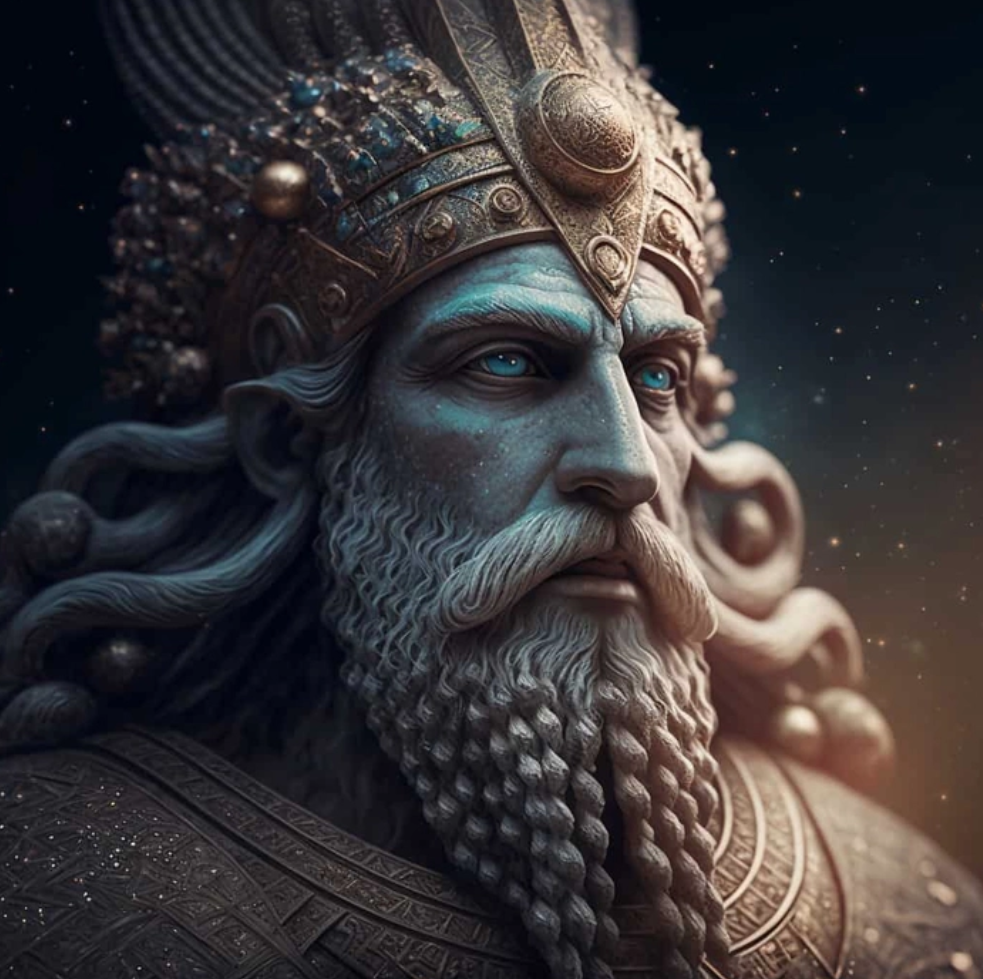
2,500 years before the birth of God, emperor Gilgamesh, ruler of Uruk, became the main character in the Epic of Gilgamesh – the “book” considered the oldest in history, which is actually just a set of inscribed clay tablets. According to this epic, Gilgamesh was buried in a tomb under the Euphrates River. However, after his death, the river turned in a different direction
Unfortunately, not long after archaeologists discovered this ancient tomb, war broke out again in the Middle East. This area has been cordoned off, prohibiting nearby residents and media reporters from entering. Therefore, the mystery of this area has not yet been solved and everything people are rumored are hypotheses without scientific proof.
